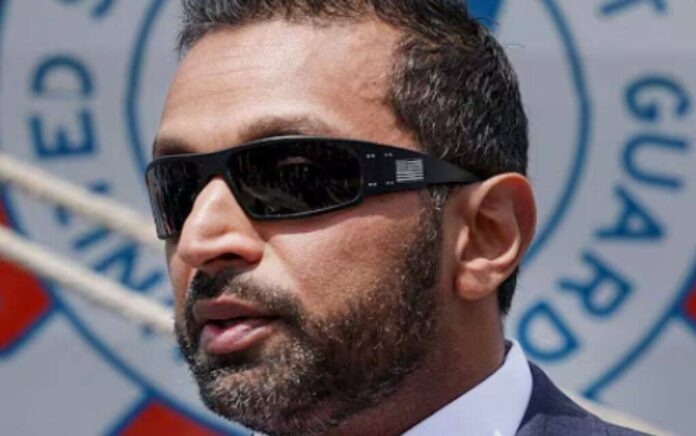
The political class is more corrupt than you could imagine. Now it’s being laid bare for all to see.
And the FBI just received documents that’s raising eyebrows over at the White House.
The Russia Hoax Unraveled: How a Paid FBI Informant Fueled a Baseless Witch Hunt Against Trump
From the very start, the so-called “Russia collusion” narrative surrounding Donald Trump was a house of cards built on shaky ground. It was a story pushed by political operatives, amplified by a compliant media, and propped up by a handful of questionable figures within the FBI. At the center of this farce was Stefan Halper, a longtime FBI informant whose recently declassified records reveal a troubling tale of financial incentives, dubious claims, and an agency all too willing to overlook red flags in its pursuit of a predetermined outcome. The nearly 700 pages of documents, obtained by Just the News after President Trump ordered their release at the onset of his second term, paint a damning picture of a probe—codenamed Crossfire Hurricane—that was rotten from its roots.
These documents, turned over by FBI Director Kash Patel to House Judiciary Committee Chairman Jim Jordan, expose Halper as a key player in the FBI’s effort to tie Trump and his associates to Russia during the 2016 election and beyond. Halper, a Pentagon consultant and academic, wasn’t acting out of pure patriotism. The records show he pocketed a staggering $1,181,064.44 from the FBI between 1991 and early 2017, including $70,000 between August 2016 and February 2017—a period that neatly aligns with his work targeting Trump’s campaign, the election, and Trump’s inauguration. The FBI’s own files admit Halper’s motivation included “monetary compensation” alongside vague nods to “patriotism/ideology.” This wasn’t a selfless whistleblower; this was a man cashing checks while feeding the FBI a narrative that didn’t hold up.
One of Halper’s most sensational claims landed like a bombshell in the summer of 2016, when he alleged that Mike Flynn, then a three-star general leading the Defense Intelligence Agency, had left a 2014 Cambridge University event alone with Russian scholar Svetlana Lokhova. The implication was clear: Flynn was cozying up to Moscow. The problem? FBI agents later determined Halper’s story was “not plausible” and “not accurate.” Yet, instead of cutting ties with Halper, the FBI kept him on the payroll and vouched for his credibility as a confidential human source codenamed “Mitch.” A March 2017 memo from the FBI’s Validation Management Unit even declared, “VMU assesses it is likely HALPER is suitable for continued operation, based on his or her authenticity, reliability, and control.” No mention was made of the Flynn-Lokhova falsehood, despite internal concerns.
The FBI’s willingness to overlook Halper’s inaccuracies raises serious questions about the integrity of Crossfire Hurricane. William Barnett, the agent handling Flynn’s case in 2016 and 2017, was blunt in his assessment of Halper’s claims. After checking with U.S. and foreign intelligence officials, Barnett found no evidence to support the Lokhova story. “Intelligence analysts did not locate information to corroborate this reporting,” he told prosecutors in 2020, adding that he found the idea of Flynn leaving an event unaccompanied “not plausible.” Yet the FBI pressed forward, investigating Flynn relentlessly while Halper continued to collect payments.
Halper’s role wasn’t limited to Flynn. The declassified records show he was tasked with gathering dirt on multiple Trump associates, including Carter Page, a low-level campaign adviser who became a prime target of the FBI’s surveillance efforts. In August 2016, the FBI pressed Halper for information on over half a dozen Trump-world figures. One memo from that month outlines an operation targeting Page, with the goal of getting him to “admit that he has direct knowledge of and is either helping coordinate or assisting the RF [Russian Federation] conduct an active measure campaign with the ‘Trump Team.’” The plan failed, but it didn’t stop the FBI from securing a FISA warrant to monitor Page—based in part on unverified allegations from another dubious source, Christopher Steele.
Steele, the retired British intelligence agent behind the infamous dossier, worked in tandem with Halper to fuel the Russia narrative. Both were paid handsomely for their efforts, and both provided information that crumbled under scrutiny. The Steele dossier, funded by Hillary Clinton’s campaign through Fusion GPS, was riddled with unverified gossip. Special Counsel John Durham later concluded that “neither U.S. law enforcement nor the Intelligence Community appears to have possessed any actual evidence of collusion in their holdings at the commencement of the Crossfire Hurricane investigation.” The dossier’s allegations, like Halper’s Lokhova tale, were a mirage—yet they drove a years-long investigation that cast a shadow over Trump’s first term.
The FBI’s handling of Halper exposes a deeper rot within the bureau’s informant program. A 2019 report by DOJ Inspector General Michael Horowitz found that the FBI “did not comply with the AG Guidelines’ requirements and its own policies and procedures for managing long-term CHSs [confidential human sources].” Despite Halper’s history of “violating instructions” as a source—he was briefly “closed” by the FBI in 2011 before being reactivated months later—the bureau continued to rely on him. An April 2017 report called Halper an “integral part” of Crossfire Hurricane, claiming his “behavior has been excellent” and that there was “none” derogatory information about him. This, even as agents privately questioned his reliability.
The financial trail is particularly galling. Halper’s payments weren’t sporadic; they were steady and substantial. In August 2016 alone, FBI Special Agent Stephen Somma submitted payment requests for $5,000 and $15,000 for Halper’s work on Crossfire Hurricane. Another $25,000 was paid in September 2016, with Somma noting that Halper “was integral in an operation against the subject of a sensitive investigation.” By early 2017, Halper was pulling in $25,000 checks in January and February, with the FBI justifying the payments by claiming he was shifting focus to “other matters.” All told, Halper’s $1.2 million haul from the FBI over three decades dwarfs what most informants could dream of earning.
The Pentagon got in on the act too, paying Halper $1.05 million between 2012 and 2016 through its Office of Net Assessment for alleged projects. That office was shuttered in March 2025 under Secretary Pete Hegseth, a move that suggests even the Defense Department recognized the need to clean house. Combined with his FBI earnings, Halper’s financial windfall from government contracts raises uncomfortable questions about whether his loyalty was to the truth or to the paycheck.
Halper’s cozy relationship with the FBI wasn’t just about money—it was about access. Operating out of Cambridge University alongside MI6 and MI5 figures, Halper had a veneer of credibility that made him an ideal tool for the bureau. He organized events like the 2014 Cambridge Intelligence Seminar attended by Flynn, which later became the backdrop for his baseless Lokhova allegations. These claims, leaked to the media, fueled a frenzy that led to Lokhova’s defamation lawsuit against Halper—a case dismissed but not without exposing the damage done by his accusations.
Flynn himself was unequivocal when questioned by Special Counsel Robert Mueller’s team. He called any suggestion of an improper encounter with Lokhova “ridiculous,” stating, “I did not have any other interaction with her during that trip, or on any other occasion.” Flynn’s account was backed by the FBI’s own findings, which showed no derogatory information on Lokhova in their databases. Yet the bureau’s leadership, including then-agent Peter Strzok, overruled agents’ attempts to close the Flynn case in early 2017, keeping the pressure on a man who had done nothing wrong.
The Carter Page saga is equally infuriating. Halper’s recorded conversation with Page in October 2016 captured the adviser denying every major allegation leveled against him in the Steele dossier—denials the FBI failed to disclose to the FISA court when seeking a warrant to surveil him. Kevin Clinesmith, an FBI lawyer, later pleaded guilty to falsifying a document to downplay Page’s prior work with the CIA, further tainting the investigation. Page was never charged with a crime, and Mueller’s final report found no evidence of a Trump-Russia conspiracy. Still, the damage to Page’s reputation was done.
The declassified records also reveal Halper’s surprising proximity to Trump’s inner circle. In August 2016, he referred to Peter Navarro, a future Trump trade advisor, as a “friend” and considered contacting him about the campaign. Navarro later told Fox News he felt “duped” by Halper, having recommended him for ambassador roles during the 2016 transition. The idea that an FBI informant who spied on Trump’s campaign nearly landed a White House job is a chilling reminder of how deeply the Russia hoax infiltrated the highest levels of government.
The media played its part too, eagerly parroting the FBI’s narrative. Outlets like Vox framed the Trump team’s objections as a “tale of politically motivated persecution,” dismissing the distinction between a counterintelligence probe and a criminal investigation. But the declassified documents make it clear: there was no evidence to justify either. The FBI’s own Validation Management Unit admitted in 2017 that it “found no corroboration concerning MITCH’s reporting,” yet still recommended keeping Halper on as a source. This wasn’t about facts; it was about pushing a story.
The fallout from Crossfire Hurricane has been profound. Horowitz’s 2019 report exposed systemic failures in the FBI’s handling of informants and FISA applications. The FISA court itself, under Judge Rosemary Collyer, slammed the bureau’s conduct as “antithetical to the heightened duty of candor” and ordered a review of every case touched by Clinesmith. Special Counsel Durham’s later findings drove the final nail in the coffin, confirming that the FBI launched its probe without any substantive evidence of collusion.
For Trump and his supporters, the Russia hoax was more than a distraction—it was a deliberate attempt to undermine a duly elected president. The declassification of these FBI records, ordered by Trump and executed by Patel, pulls back the curtain on a scandal that weaponized the nation’s top law enforcement agency against a political opponent. Halper’s role, lubricated by millions in taxpayer dollars, shows how far the FBI was willing to go to keep the narrative alive, even when its own agents knew the claims were baseless.
The human cost of this saga can’t be ignored. Flynn, Page, and others saw their lives upended by a probe built on lies. Lokhova, an innocent academic, was dragged into the crossfire of Halper’s allegations. And the American public was fed a years-long spectacle that eroded trust in institutions meant to serve them. The FBI’s refusal to course-correct, even as evidence of Halper’s unreliability piled up, speaks to a culture of arrogance and agenda-driven decision-making.
As these documents come to light, they serve as a stark reminder of why transparency matters. The Russia collusion narrative was never about protecting national security—it was about power, politics, and settling scores. Stefan Halper, with his fat bank account and questionable stories, was just one piece of a much larger puzzle. But his story, now laid bare, confirms what many suspected all along: the Trump-Russia conspiracy was a sham from the jump, and those who pushed it have a lot to answer for.



















